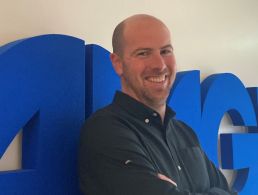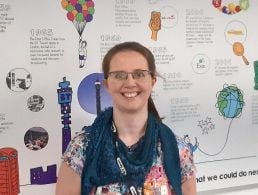Janssen’s Rita Sousa discusses what a typical day looks like in her role and how she avoids being a slave to her calendar.
Rita Sousa completed a degree in biological engineering in Portugal. As part of her studies, she was able to spend her final year in University College Cork through an Erasmus programme. She then completed a research master’s there.
Currently she is a downstream system user working for Janssen Sciences, with a few years of experience in engineering and operations roles at the company’s growing Ringaskiddy base.
‘I enjoy the fact that engineering is so broad – it never gets boring!’
– RITA SOUSA
If there is such a thing, can you describe a typical day in the job?
During the Johnson & Johnson graduate programme, I completed a module on time management and organisational skills as part of a CPD course from Engineers Ireland, where a key insight was that we are slaves to our calendars.
I find it extremely important to start each day with studying my calendar and taking the time to really examine what is a priority.
My calendar is a necessary tool for me to be able to work effectively and to make sure any calls or meetings I have are on my high-priority tasks and draft up my famous to-do list. It also allows me to get any prep work for those done first thing.
On a day when there are no big meetings or presentations, I try to start my morning by catching up and responding to emails as well as checking in with my direct reports.
What types of project do you work on?
I have been part of Janssen’s BioCork 2 site and held graduate contract roles within the engineering and operations teams since 2020.
As of August 2021, I have been in the role of downstream operations rep for the forthcoming Janssen BioCork 3.2 expansion project. This project has allowed me to expand into some new people management responsibility.
It might sound a bit of a cliché – but I believe hard work, a positive mindset and good working relationships pay off.
What skills do you use on a daily basis?
Through my engineering background, I start by acknowledging the skills that I learned in college and see how they can help me throughout my career such as creativity and problem-solving skills.
Working within the pharmaceutical industry, I value and acknowledge the years of experience from site contractors and vendors and, most importantly, Janssen staff (technicians, MPSs, engineers, etc) to complete projects in a timely manner.
For me, it is all about teamwork and proper communication.
What are the hardest parts of engineering?
When I first began my journey in Janssen in 2017, the language barrier regarding some terms proved to be quite challenging. Over the last five years, I learned to not be ashamed to say, “I don’t know what that is, can you please show me?”
The phrase ‘a picture is worth a thousand words’ is such a true saying, especially when you’ve never heard and, in some cases, never seen something in your life. People will respect you more when you are upfront with them.
Do you have any productivity tips that help you through the day?
I like to prepare a to-do list every evening for the next day in my diary and prioritise items based on importance and not urgency. However, sometimes the completion of a task is outside of our area of knowledge and experience.
In Portugal there is a saying: ‘Ficar em águas de bacalhau’. It means ‘to stay in codfish waters’, or to stand still and do nothing, not progress ahead.
To get out of this situation, I like to ask the opinion and experience of my colleagues and this way complete the tasks or projects.
What skills and tools are you using to communicate daily with your colleagues?
English is not my native language, so I try to make my work more visual. Visuals are essential to ensure communication is effective.
How has this role changed as the engineering sector has grown and evolved?
I can’t say much from personal experience as I only have five years’ experience in this industry. However, from talking with fellow women engineers, it is acknowledged that the engineering sector is evolving and becoming more inclusive.
I do believe that there is an authentic desire for additional diverse talent at Ringaskiddy, within the engineering sector as well as at different organisational levels.
What do you enjoy most about working as an engineer?
I enjoy the fact that engineering is so broad – it never gets boring! A typical day as an engineer very much depends on the type of role and sector you are in.
My previous experience as a process engineer helps me with the design and engineering part for my current role for the expansion project.
What advice would you give to someone who wants to work in engineering?
Don’t underestimate your experience, college background or personal network. Skills are transferable if you showcase them during your interview.
If you are applying for your first entry positions and you are struggling with progression, reach out to the careers office support at your college as they can help you to structure your CV.
Make sure to also connect with college professors as they can assist you with job searching, writing letters of recommendation, and introducing you to industry contacts.
10 things you need to know direct to your inbox every weekday. Sign up for the Daily Brief, Silicon Republic’s digest of essential sci-tech news.




